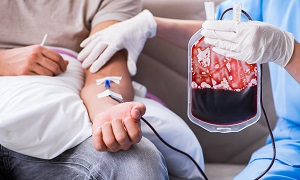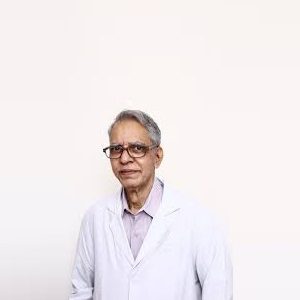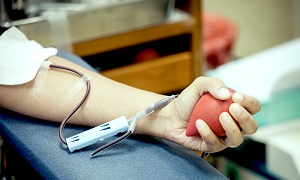Best Doctors in India for Hip Replacement
- Top Orthopedic Surgeon & Spine Surgeon | Apollo Hospitals, New Delhi, India
- 15+ Years Experience
- Indraprastha Apollo Hospital, New Delhi
Profile Highlights:
- Currently serving as a Senior Consultant in Orthopaedic Surgery at Apollo Hospitals Indraprastha, New Delhi.
- Dr. Amit Kumar Agarwal is a highly esteemed Orthopaedic surgeon with over 15 years of comprehensive experience.
- Dr. Agarwal holds an impressive array of qualifications, including MBBS, MS (Ortho), DNB (Ortho), MCh (Ortho), MNAMS, MIMSA, and Dip SICOT.
- Top Orthopedic Surgeon | Apollo Hospital, New Delhi, India
- 22+ Years Experience
- Indraprastha Apollo Hospital, New Delhi
Profile Highlights:
- Dr. Vibhu Bahl is one of the finest Orthopedist and Joint Replacement Surgeon in India. He has experience of over 22 years in this field.
- Dr. Bahl has successfully performed multiple complex and primary total knee and hip replacements over his career. Besides these, he specializes in computer-assisted total knee replacements. Patients seeking Arthroscopy for shoulder dislocation, degeneration, and repair must consult him.
- Dr. Bahl participated as a Faculty in many Arthroscopy conferences.
- He is passionate about research and has a long list of publications in prestigious national and international journals.
- Orthopedic Surgeon, Chennai, India
- Over 25 years’ experience
- Apollo Hospitals Greams Road
Profile Highlights:
- Dr. Krishnamurthy K provides consultation at the Apollo hospitals of Chennai.
- He has also worked as a senior registrar and assistant surgeon earlier and has sound knowledge of his field.
- One can reach Dr. Krishnamurthy K for treatment of fractures, joints, shoulders, knees, hip replacement, etc.
- Orthopedic Surgeon, Chennai, India
- Over 24 years’ experience
- Apollo Hospitals Greams Road
Profile Highlights:
- Dr. Rajasekar P is an experienced orthopedist with 24+ years of experience.
- He treats and consults patients with problems with Joints, fractures, osteoporosis, Spine injuries, etc.
- He is an MBBS and DNB qualified doctor and practices at Apollo hospitals of Chennai.
- Orthopedic Surgeon, Chennai, India
- Over 50 years’ experience
- Apollo Hospitals Greams Road
Profile Highlights:
- Dr. Uma Chandran S specializes in orthopedics and is a veteran surgeon at Apollo Hospitals of Chennai.
- He has spent more than 50 years in the field of orthopedics and is believed to be one of the best orthopedists in Chennai.
- He is also known for his expertise in bone replacement surgery, spine movement, fracture treatment, etc.
- Orthopedic Surgeon, Gurugram, India
- Over 10 years’ experience
- Artemis Hospital, Gurgaon
Profile Highlights:
- Irfan Banday is a brilliant young orthopedic surgeon with over 10 years of experience handling trauma surgeries and ortho problems.
- Irfan received Fellowship in Knee Arthroscopy and Arthroplasty and Shoulder and Upper Limb Arthroscopy, Arthroplasty & Reconstructive Surgery.
- He manages simple & complex fractures, Reconstructive Surgeries of the Knee, Shoulder, Upper limb, and complex tendon transfers.
- Orthopedic Surgeon, Gurugram, India
- Over 23 Years Experience
- Medanta-The Medicity, Gurgaon
Profile Highlights:
- Dr. Dahiya brings extensive expertise and experience to his role as Senior Director at Medanta The Medicity in Gurugram.
- Dr. Vivek Dahiya is a highly esteemed orthopaedic surgeon specializing in knee joint disorders and surgeries. With a comprehensive educational background including a D.N.B. in Orthopaedics and an M.D. in Physician.
- His proficiency encompasses a wide range of knee arthroscopic techniques, including diagnostic arthroscopy, meniscus surgery, cartilage preservation, and transplantation.
Best Hip Replacement Hospitals in India
- City: Mumbai, India
Hospital Highlights:
- Fortis Hiranandani hospital was established in 2007.
- The hospital is an advanced tertiary care, multi-specialty hospital equipped with 149 beds.
- The hospital is equipped with a super ICU to provide emergency medical care to critically ill patients.
- The hospital is NABH accredited.
- The critical care facility in the hospital is augmented with the state-of-the-art facilities that facilitate speedier diagnosis and efficient monitoring.
- The hospital provides specialty medical services in cardiology, orthopedic science, pediatric science, neurology, diabetic care, urology, nephrology, ENT, obstetrics, gynecology, cosmetic surgery, bariatric surgery, neuro and spine care.
- City: Gurugram, India
Hospital Highlights:
- W Pratiksha Hospital, Gurugram, is one of the best hospitals in the NCR region. It is also a top hospital in India for IVF. Since its inception, the hospital has performed over 5500 successful IVFs. The hospital also specializes in gynecology.
- With over 20 years of experience in providing quality healthcare, the hospital is known as one of the most trusted and valued health providers in India.
- Equipped with world-class medical facilities and advanced technology, the hospital’s doctors and clinicians also have a track record of delivering excellent results. The hospital is also known for focusing on preventive well-being as much as on curative treatment.
- The hospital has earned the trust of its patients, by providing the best available treatments at affordable costs.
- City: Gurugram, India
Hospital Highlights:
- Paras hospital was established in 2006 and is the 250 bedded flagship hospital of Paras Healthcare.
- The is supported by a team of doctors of international and national repute.
- The hospital is NABH accredited and also the first hospital in the region to have a NABL accredited laboratory.
- The hospital provides specialty medical services in around 55 departments including Neurosciences, Joint Replacement, Mother & Child Care, Minimal Invasive Surgery, Gynecology and Obstetrics, Ophthalmology, Dermatology, Endocrinology, Rheumatology, Cosmetic and Plastic surgery.
- The hospital is equipped with state-of-the-art technologies.
- City: Kolkata, India
Hospital Highlights:
- Fortis Hospital, Anandapur, Kolkata is a world-class super-speciality equipped with the latest technologies in the medical world.
- The hospital is NABH accredited.
- This state-of-the-art facility specializes in cardiology and cardiac surgery, urology, nephrology, neurosciences, orthopaedics, digestive care, emergency care and critical care.
- The hospital, governed by integrated Building Management System (IBMS), has a pneumatic chute system, for quick vertical and horizontal transportation between floors, facilitating speedy transfer of patient specimens, documents, reports, and medicines to the concerned departments.
- The hospital also has a nephrology department with over 28 advanced dialysis units.
- City: Mumbai, India
Hospital Highlights:
- SL Raheja hospital is a 140-bed multi-specialty tertiary care hospital that is being managed by Fortis Healthcare Ltd.
- The hospital is a benchmark in healthcare and medical facilities in the neighborhood of Mahim & the western suburbs.
- L.Raheja Hospital, Mahim has one of the most effective ICU and Casualty care services.
- The hospital provides specialty medical services in Cardiology, Oncology, Neurology, Orthopedics, Mother & Child Care, and in Diabetes.
- City: Mumbai, India
Hospital Highlights:
- Wockhardt Hospitals were established in the year 1973, originally called First Hospitals and Heart Institute.
- Wockhardt Hospitals are super specialty health care networks in India, nurtured by Wockhardt Ltd, India’s 5th largest Pharmaceutical and Healthcare company.
- Wockhardt Hospitals is associated with Partners Harvard Medical International, an international arm of Harvard Medical School, USA.
- Wockhardt Heart Hospital performed India’s first endoscopic heart surgery.
- The hospital has a state-of-the-art infrastructure equipped with the latest technologies and modern equipment.
- It has special Centers of Excellence dedicated to the major specialties to provide hassle-free and high-quality clinical care.
- City: Gurugram, India
Hospital Highlights:
- The CK Birla Hospital in Gurugram is a NABH-accredited multi-specialty hospital.
- The hospital strives to increase the quality of healthcare by focusing on UK NHS nurse and midwife training requirements. Policies and practices derived from the National Institute for Health and Treatment Excellence (NICE) recommendations in the United Kingdom ensuring that a strong focus on safety, high-quality clinical care, and sanitation is maintained.
- The hospital’s cutting-edge technology and facilities allow for real-time communication and seamless collaboration among caregivers, ensuring accuracy and the best possible results. Those with foreign experience and accreditations make up part of the hospital’s team of clinicians.
- City: Ahmedabad
Hospital Highlights:
- As a member of the Apollo Hospitals Group, Apollo Hospitals International Limited, Ahmedabad is one of the most popular and sought-after medical facilities in Gujarat.
- Through its 6 Centres of Excellence and various affiliated branches, which cover all specialties and subspecialties, the hospital provides the most advanced clinical services.
- Since its inception in 2003, the hospital has been providing each patient with the most up-to-date medical equipment and state-of-the-art technology.
- With more than 150 successful organ transplants, including liver and renal transplants, the facility has been able to build a strong and extensive organ transplant program.
- In addition to performing 600 surgeries and caring for over 1800 patients on an IP basis, the hospital sees more than 18,000 patients on average in the outpatient department.
- With one of the biggest cardiology teams in the area, the hospital provides state-of-the-art regional care treatment in Cardiac Sciences.
- Additionally, the hospital offers a broad range of Neuro Interventional techniques to help stroke patients recover more quickly.
- City: Noida, India
Hospital Highlights:
- Jaypee Hospital is the flagship hospital of the Jaypee Group.
- This hospital has commissioned 525 beds in the first phase and has been planned and designed as a 1200 bedded multi-specialty facility.
- It holds the accreditation of the NABH and NABL.
- The hospital has state-of-the-art infrastructure equipped with the latest technologies and modern equipment like 64 Slice PET CT, Dual Head 6 Slice SPECT CT, Gamma Camera, and Da Vinci Robotic Surgery for comprehensive robotic surgical solutions.
- It has special Centers dedicated to the major specialties to provide hassle-free and high-quality clinical care.
- City: Mumbai, India
Hospital Highlights:
- Reliance Hospital is one of the best super-specialty care hospitals in Navi Mumbai.
- The main purpose of this hospital is to become a trustworthy place for the best health and hope for society. The hospital is well connected to the suburbs of Mumbai and Navi Mumbai.
- The hospital has various specialty departments, viz., Accident & Emergency, Anesthesiology, Dental Services, Dermatology, Diabetology, Dietetics Nutrition, Endocrinology, ENT, Gastroenterology, General Surgery, Gynaecology And Obstetrics, Hepato Pancreato Biliary Surgery, Infectious Disease, Internal Medicine, Interventional Radiology, Laboratory Medicine, Minimal Access Laparoscopic Surgery, Nephrology, Neurosciences, Opthalmology, Orthopaedics, Paediatrics, Pain Management Palliative Care, Physical Medicine Rehabilitation, Plastic And Reconstructive Surgery, Psychiatry, Pulmonary Medicine, Radiology, Rheumatology, Transplant, Urology Andrology, Vascular Surgery
Total Hip Replacement
Total Hip Replacement is a surgical procedure prescribed for people suffering from a bad or damaged hip. In this surgical procedure, the doctor removes the entire hip joint and replaces it with an artificial hip joint usually made of high-quality metal or plastic elements.
A total hip replacement is suggested when all the other primary treatment methods have shown unsuccessful recovery. The primary goal of this surgery is to remove the bad hip joint in order to reduce pain and stiffness while improving hip joint flexibility amongst patients.
Causes of Hip Damage
The primary cause for damage in the hip joint is due to osteoarthritis, a condition the promotes cartilage loss in the hip joint. Apart from osteoarthritis, other causes for a total hip replacement can be:
- Rheumatoid Arthritis
- Post-traumatic Arthritis
- Osteonecrosis
- Fracture or dislocation of the hip joint/bone
- Childhood disorders
Indications for Total Hip Replacement
Usually, general pain and stiffness of the bone is not enough for doctors to recommend a total hip replacement surgery. However, based on your symptoms, doctors might consider the possibility and ask for some diagnostic tests to determine the underlying cause of these symptoms. Some of these symptoms include-
- Intense pain even after taking pain relief medication
- Inflammation of the hip joint due to cartilage loss
- Difficulty during walking
- Difficulty in general movement of the hip joint
- Insomnia due to discomfort or pain
- Stiffness or hip joint locking
Alternative method to Total Hip Replacement
There’s an alternative method to hip replacement, known as the Birmingham Hip Resurfacing Surgery. This procedure is generally suggested for patients falling under the young category, for instance from infants to patients ageing between 40-50. In this surgery, instead of replacing the entire hip joint, the doctors resurface or shaves the damaged part of the hip joint and adds an artificial brace to the joint. This allows free movement and flexibility along with reduced pain. Even though this procedure is more favored over total hip replacement, the final verdict will be disclosed by your orthopedic surgeon based on the damage caused to the hip bone along with your age, weight, general immunity strength and more.
Apart from the two surgical options, other primary non-operative treatment methods may include:
- Pain-relief medications
- Physiotherapy
- Joint supplements
- Weight loss and change in day-to-day activities
Diagnostic tests needed
When the primary treatment methods fail, the doctor may suggest some diagnostic tests to determine the underlying cause and based on the test results, the surgical method is decided. Initial tests include movement or other physical tests along with X-ray, MRI or EKG tests to determine whether the problem is bone-related or neurology-related. Apart from that, the doctor may ask you about running bone or arthritis disorders in your family along with your past medical history.
Total Hip Replacement procedure explained
Preparation
There are no exclusive preparation methods for this surgery. However, the general preparation includes fasting 10-12 hours before the surgery including a 24-72 hour break from alcohol or tobacco consumption strictly. Patients are requested to help the medical team out with a detailed list of past medical history including bleeding disorders, past or ongoing medications including blood thinners, pain relief medications, OTC, herbal supplements, vitamins and even homeopathy medications, and any ongoing allergies to particular medications. Your medical team will help you out with detailed dietary chart for the days leading up to the surgery day and if you’ve not received a chart, we recommend asking your healthcare providers for possible dietary regulations.
Blood Donation
Total Hip Replacement Surgery
The total hip replacement surgery can be conducted in either of the two ways:
- Traditional method or the open-surgery
- Minimally invasive method.
Even though the procedure for both the methods remains the same, the only notable difference is within the size of the incision. In the latter method, the incision is kept minimum and the post-operation care, wound healing, recovery, and pain is usually less compared to the traditional method.
THR procedure is done under general anesthesia.
Once the artificial joints are put in place, the doctor checks for any additional cartilage or bone damage and removes it. The hip muscles are then put back in place and the incision is sewed shut.
Steps of Surgery
Total hip replacement is two-step surgery:
Step 1: The doctor makes an incision in the hip area and moves the hip muscles out of the way to reveal the hip joint. The ball of the joint connected to the femur is then shaved off and an artificial joint replaces the area. The artificial joint is usually made up of stems inserted and attached to the femur bone with the ball part sticking out.
Step 2: Now the doctor preps the hip bone socket removing any damaged cartilage or bone from the area. The artificial joint cup is inserted into the socket and the artificial joint attached to the femur bone is then fixed into the socket. An additional drain may be created to drain out the excess fluid accumulation in that region.
Once the artificial joints are put in place, the doctor checks for any additional cartilage or bone damage and removes it. The hip muscles are then put back in place and the incision is sewed shut.
Blood Transfusion

Since this surgical procedure may result in a lot of blood loss, doctors based on the patient’s blood loss rate might recommend a blood transfusion after the surgery.
Probable risks of Total Hip Replacement Procedure
Common risks or complications of the surgery include
- Infection
- Body’s reaction to the foreign artificial joints
- Breaking or fracturing of bones during the procedure
- Blood clots or bleeding disorder
- Artificial joint dislocation or loosening
- Metal on metal complications
One of the side-effects to total hip replacement may include shortening of one the limbs causing a change in leg length.
Post-operation care
What you can expect after your hip replacement surgery:
- Physical therapy will start after the day of the operation
- Patients will be given walkers or crutches to walk a few days after the surgery
- Patients will be requested to use a pillow or cushion in between the knees for the initial days to hold the artificial joints into position
- The incision stitches or staples will be cleared in the follow-up visit, usually, 2 weeks from the day of the surgery. However, the wound needs to be duly taken care of. Patients are requested to change the wound dressing every day to keep it clean and dry. Please do not put water, cream, ointments, or lotions on the wound without doctor approvals. Patients can return to their normal life within 3-6 weeks of the surgery. However, rotating or twisting of the hip joints is strictly prohibited for 6-1 months. Doctors advise patients to continue with physiotherapy as requested.
FAQs
How long will the hospital stay be for total hip replacement surgery?
The usual hospital stay for the hip replacement surgery is for 4-6 days but based on the patient’s recovery status or progress, the doctors might extend the hospital stay for better monitoring or management.
Can my hip replacement surgery fail?
Sometimes the artificial joints may fall out of place or get loose due to wear and tear or certain bone related complications might make it difficult, but in most, cases hip replacement surgeries have been successful.
What happens if the surgery fails?
In case your hip replacement surgery fails, based on your condition and your body’s reaction to the surgery, doctors might prescribe a second replacement surgery.
Can I climb stairs after the surgery?
Activities such as sitting on the floor or climbing stairs should be kept to minimum after the surgery.
Why do I feel pain even after the surgery?
It is normal to feel pain after a hip replacement surgery. However, the pain is limited to the initial days only, especially, during or after physiotherapy. If the pain persists even after the first 3 weeks, kindly contact your doctor.
Will my hip replacement surgery last forever?
Usually, hip replacements last for a good 10-12 years or more based on usage but wear and tear of the joint or loosening of the artificial joint might reduce the years.





















